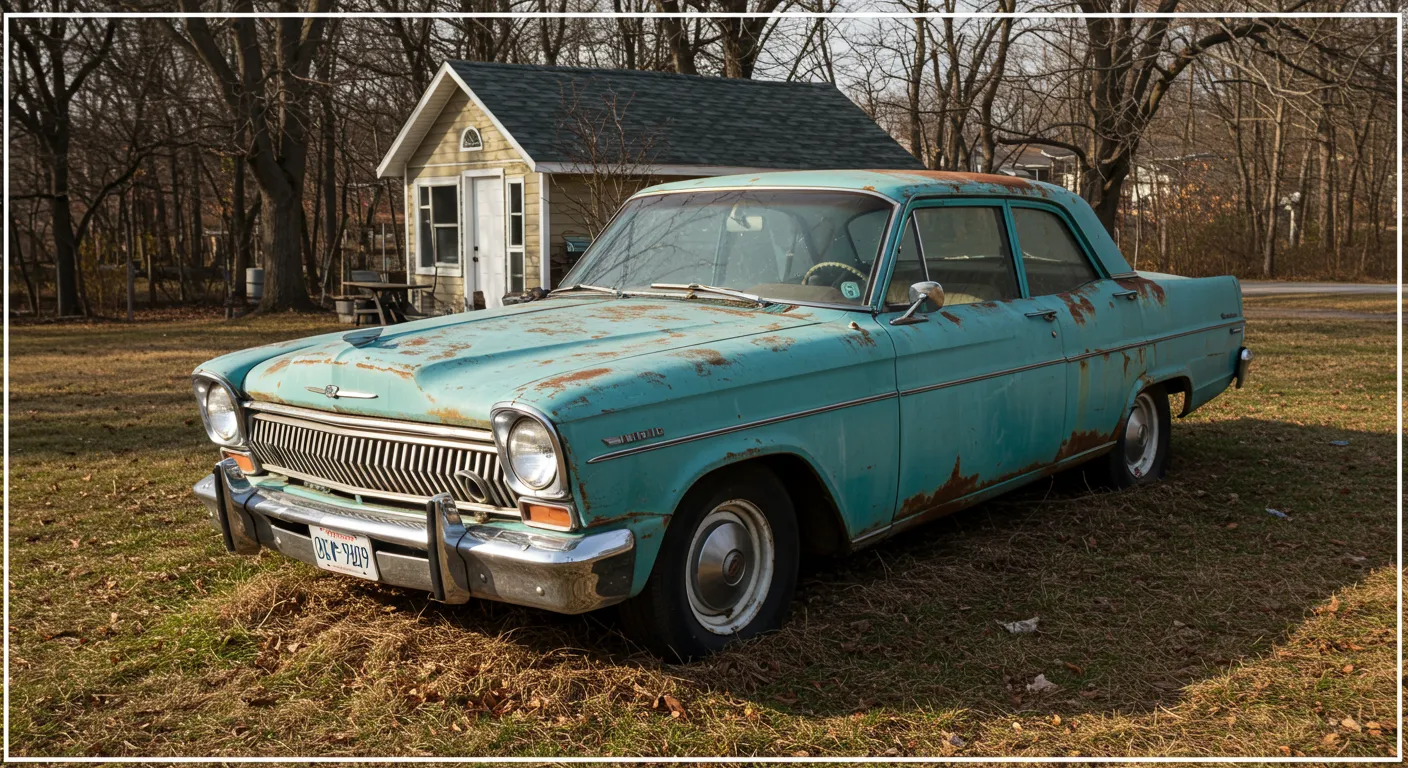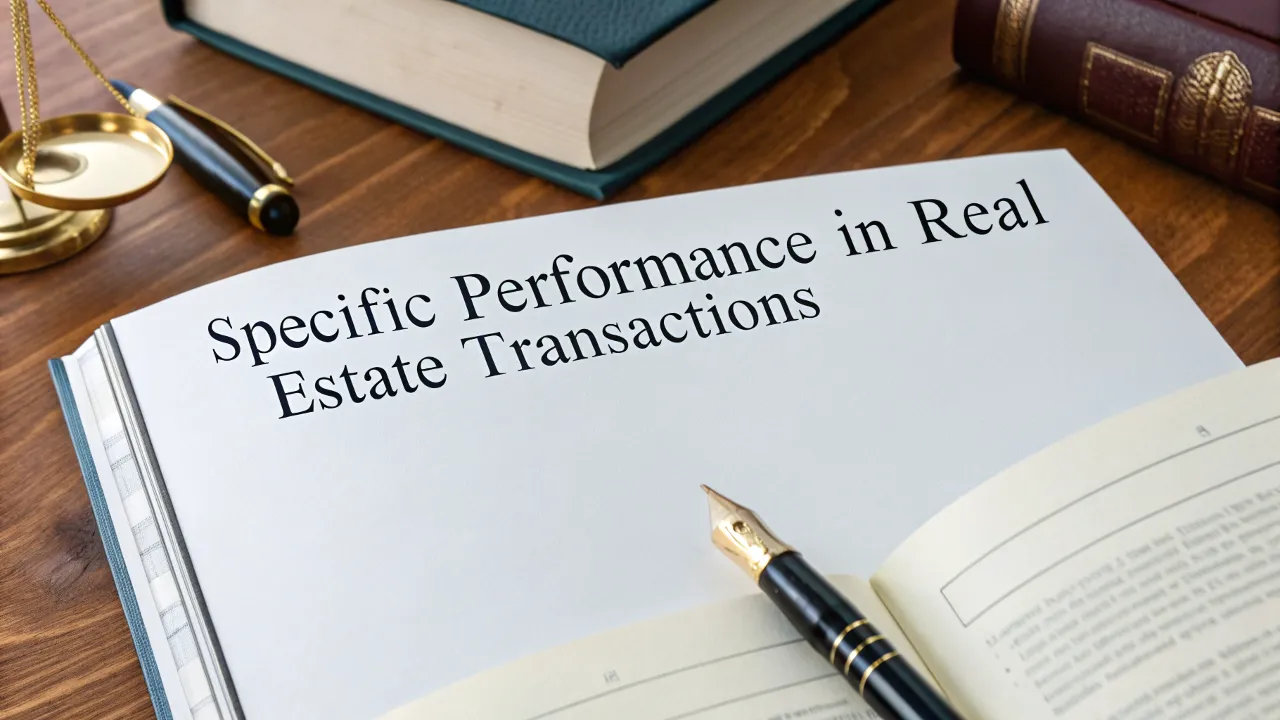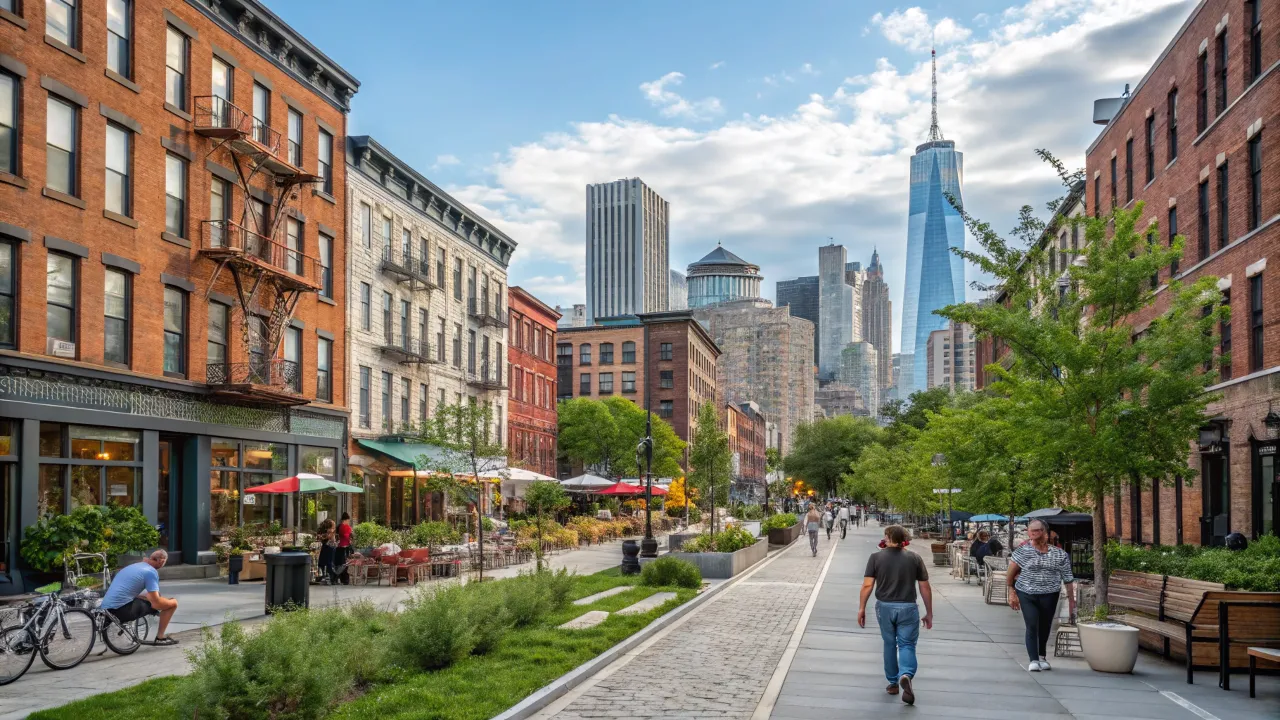Table of Contents
Old car real estate might sound like a strange combination of words at first glance, but it’s a growing concept that merges unconventional thinking with smart investing. In fact, the idea of leveraging junk or unused vehicles to unlock property opportunities is gaining momentum in urban and suburban markets alike. Whether you’re a property investor, a real estate flipper, or just someone with an old car gathering dust, this article will show you how to make that rusty vehicle part of your real estate journey.
What Is Old Car Real Estate?
Old car real estate refers to strategies where outdated, unused, or junk vehicles are repurposed or monetized in ways that generate capital or utility within the real estate sector. Rather than letting an old car sit idle in your garage or backyard, smart investors are finding ways to either extract value from it—or turn it into a unique real estate asset altogether.
It’s a concept that stretches across various strategies:
- Trading or selling old cars to raise funds for property investments.
- Vehicles can be used as mobile homes or offices on vacant land.
- Utilizing junk cars creatively for storage, construction materials, or aesthetic value in real estate development projects.
How It Works: From Rust to Real Estate
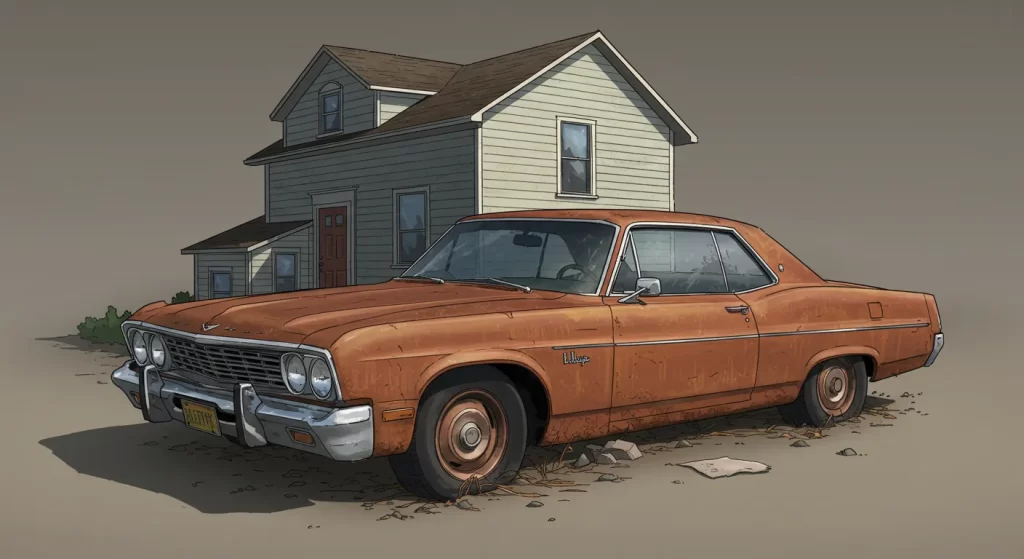
1. Sell Your Junk Car for Startup Capital
One of the most straightforward approaches to old car real estate is liquidating your unused vehicle. Many junk car buyers offer cash on the spot—especially if the vehicle is still in one piece. The funds raised from this sale can be reinvested into down payments, closing costs, or basic repairs for a fixer-upper property.
2. Use Vehicles as Alternative Real Estate
In areas where zoning laws allow flexibility, RVs, school buses, and even vans are being refurbished and stationed on land as temporary housing or workspaces. With the growing tiny house movement, an old vehicle can be converted into:
- A tiny home on wheels
- A short-term Airbnb rental
- A mobile food truck or boutique
These setups often cost far less than traditional home builds, providing a faster return on investment.
Also Read: Understanding Real Estate Development Companies: Key Players and Their Insights
3. Repurposing Car Parts in Real Estate Projects
Old cars are full of materials—steel, glass, plastic, upholstery—that can be upcycled into real estate features:
- Decorative panels and art installations
- Industrial-style railings or fencing
- Furniture and storage units This eco-conscious use not only saves on construction costs but adds a unique selling point to any property.
Benefits of Old Car Real Estate Strategies
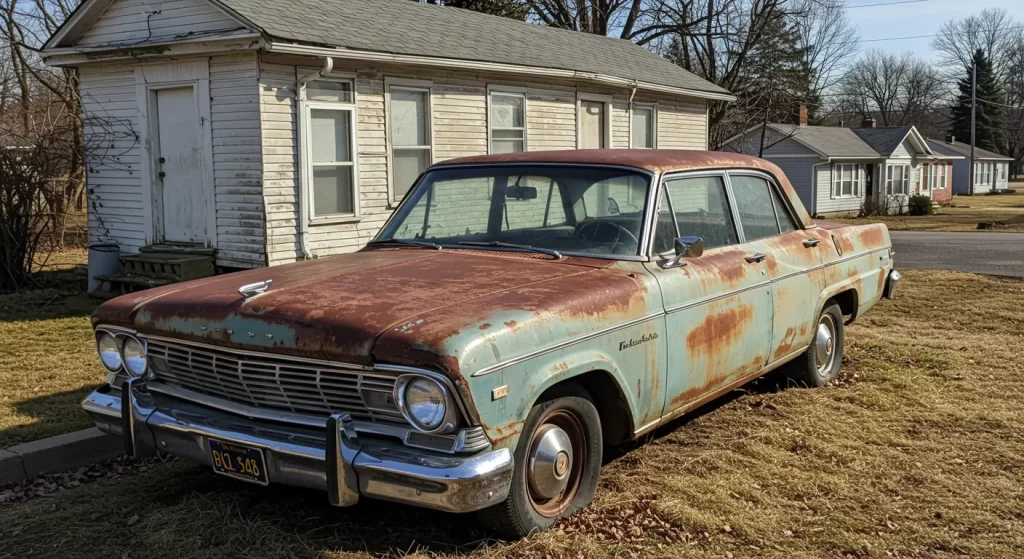
Embracing the old car real estate model can lead to numerous benefits:
A. Low Entry Barrier
You don’t need millions to start. Even a few hundred dollars from a car sale can jumpstart a micro-investment project, such as wholesaling properties or crowdfunding real estate investments.
B. Creative Zoning Advantages
In some rural or unincorporated areas, zoning restrictions are less strict. This gives investors more freedom to place unconventional dwellings like vehicle homes, creating value from empty land without needing full construction permits.
C. Sustainability and Green Building Trends
Reusing car parts and vehicles aligns with growing environmental awareness. Eco-friendly projects attract a niche of buyers and renters who are willing to pay a premium for sustainability.
Also Read: Investing in International Real Estate: A Comprehensive Guide to Opportunities and Challenges
D. Boosting Land Value
Even something as simple as parking an old RV or classic car on a vacant lot can give it curb appeal or a functional purpose. In remote regions, this strategy alone can increase perceived land value.
Risks and Challenges
While the concept is innovative, old car real estate strategies come with certain challenges:
- Zoning and regulation issues: Not every area allows permanent vehicle housing or alternative uses of land.
- Hidden car costs: Converting a vehicle into a livable or usable space may require substantial investment in plumbing, electrical, and insulation.
- Market acceptance: Some buyers may not appreciate or understand the aesthetic or value behind reusing car components.
- Depreciation: Unlike land, most vehicles depreciate, so it’s essential to strike the right balance between reuse and resale.
Success Stories That Inspire
Mobile Homes Turned Luxury Rentals
A real estate enthusiast in Arizona purchased two old school buses for under $5,000, converted them into eco-friendly rentals, and stationed them on a private plot of desert land. The result? A monthly income of $2,000 via Airbnb.
Scrap Car, Startup Funds
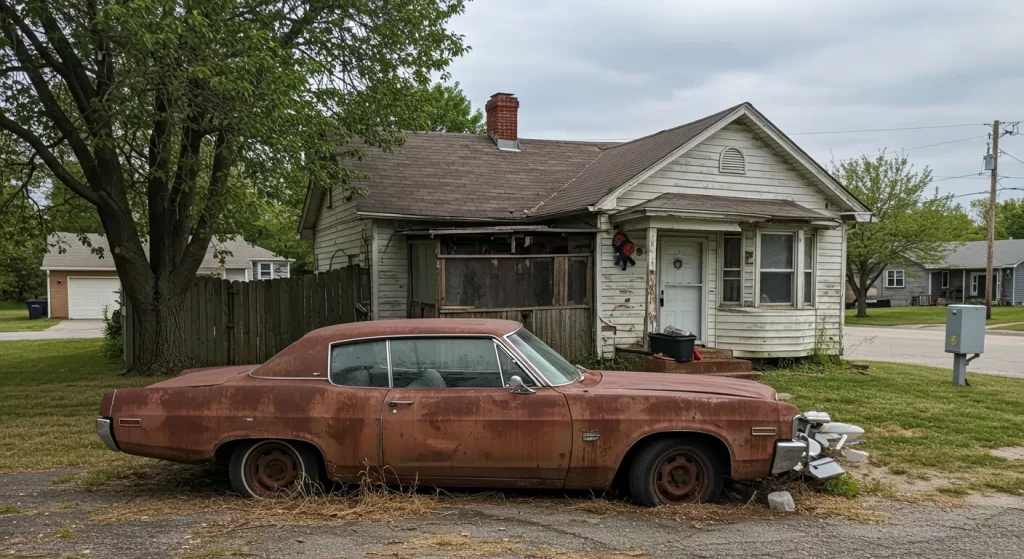
A Chicago-based couple sold three broken-down cars from their property, netting $3,600. They used this cash to join a real estate investment group and ended up co-owning their first multi-family unit within eight months.
Junkyard Meets Art Gallery
In Portland, a local developer repurposed car doors and hoods into wall art for an industrial-style loft complex. The unique design gained viral attention, increasing demand and unit prices.
How to Get Started
Ready to dive into old car real estate? Here’s a simple checklist to begin:
- Evaluate your old car – Is it worth fixing? Selling? Reusing?
- Research local zoning laws – Know what’s allowed on your land.
- Connect with a junk car buyer – Compare offers from multiple buyers.
- Consider repurposing – Look for creative ways to reuse your car or parts.
- Explore vacant land options – Start small with budget-friendly plots.
- Join real estate forums or groups – Learn from others who’ve done it.
Final Thoughts
Old car real estate isn’t just a quirky trend—it’s a powerful mindset shift. By looking at junk vehicles as opportunity instead of waste, you’re tapping into the essence of resourceful real estate investing.
Whether you’re converting a van into a cozy cabin or selling your sedan to fund a down payment, the key lies in creative thinking and bold action. In the end, what seems like a rusting liability might just be your first step into the world of old car real estate.
FAQs
Can I use an old car as a home legally?
Yes, in some areas with flexible zoning, old cars or vans can be converted into livable homes or tiny houses.
How much can I get for selling a junk car?
You can typically get $200 to $1,000 depending on the car’s condition, parts, and scrap metal value.
Can I park an old RV on land I own?
Yes, if local zoning allows it. Always check land-use laws before parking or living in an RV on private property.
What’s the best way to fund real estate with an old car?
Sell or scrap the car and use the cash as a down payment or startup capital for property investing.

